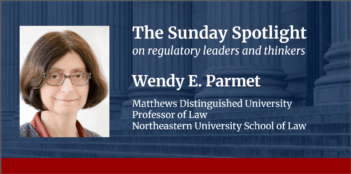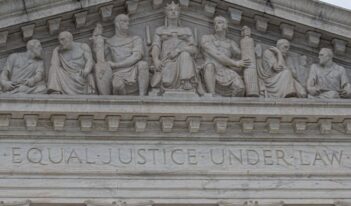Substance, Procedure, Reasoned Decision-Making, and the President
Courts must distinguish substantive from procedural duties in agency review to preserve reasoned decision-making.
The Court’s Distrust of the Administrative State
Gillian E. Metzger discusses how the U.S. Supreme Court has reshaped administrative law.
DOGE Is Dead, But Deregulation Is Just Getting Started
The White House’s recent memo could reshape the regulatory landscape faster than ever.
Rethinking Online Safety for Children
Scholar argues that denying access to online platforms does more harm than good to minors.
Regulating Immigration or Regulating Citizens?
Scholar argues that ending birthright citizenship threatens the rights of all U.S. citizens.
Rising Judicial Skepticism of Public Health Agencies
Wendy E. Parmet discusses the impact of skeptical federal courts on public health regulation.
Congress Should Eliminate the FCC’s Public Interest Authority
The FCC’s authority to regulate needs to reflect the modern realities of broadcasting.
No Need for the Supreme Court to Revisit the Fairness Doctrine
The Court should not overturn a settled doctrine that ensures the fair use of airwaves.
Revisiting Broadcast Fairness
Scholars and practitioners debate the continued need for the FCC’s fairness doctrine for broadcast news.
A New Approach to Understanding Content Moderation
Scholars propose an alternative First Amendment framework for online platform regulations.
Delegated Discretion is the New Deference
Scholar suggests that recent shifts in administrative law will matter less than critics fear and supporters hope.
The Supreme Court Should Overturn the Fairness Doctrine
The Court should no longer allow the government to require that broadcasters air opposing views on public issues.












